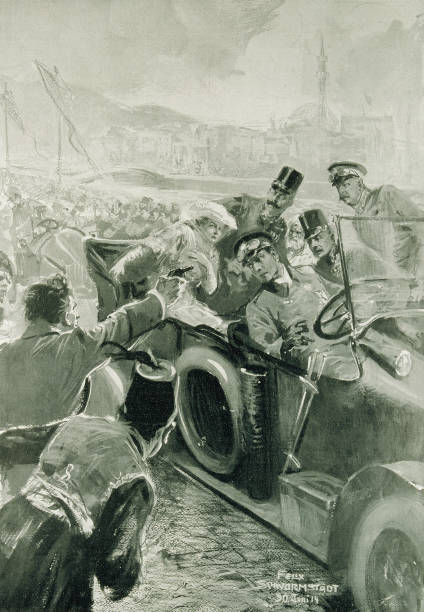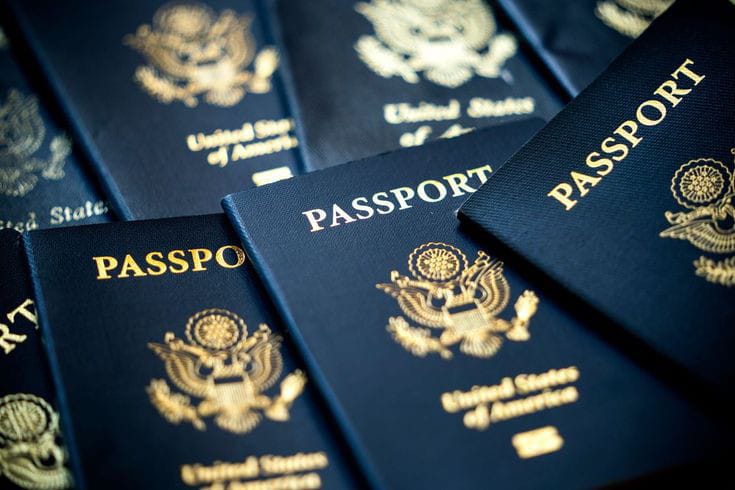Exploring Alternate Realities: What If the Archduke Had Lived?

World War I, which began in 1914 and ended in 1918, stands as one of the most significant events of the 20th century. It drastically altered the global landscape and spurred massive technological advancements that shaped the future. Occurring during the peak of the Industrial Revolution and a turbulent 20th century marked by the decline of the Ottoman Empire, the Great War is often attributed to the assassination of Archduke Franz Ferdinand of Austria-Hungary and his wife, Sophie, Duchess of Hohenberg, by Bosnian Serb nationalist Gavrilo Princip in Sarajevo on June 28, 1914. Princip was a member of a nationalist group seeking to end Austro-Hungarian rule in Bosnia.
At the time of the assassination, Emperor Franz Joseph of Austria-Hungary was eighty-four, and the murder of his heir was seen as a direct threat to the stability of his empire. This event set off a chain reaction of political and military maneuvers known as the July Crisis. Austro-Hungarian leaders issued a harsh ultimatum to Serbia on July 23, demanding severe concessions. Meanwhile, other European powers began preparing for war. Russia started mobilizing its armed forces in support of Serbia, Germany and Austria-Hungary solidified their alliance, and France declared its support for Russia. The British leaders saw no reason to participate in the conflict so they remained neutral.
On July 25, Serbia agreed to all but one of Austria-Hungary’s demands, hoping to avoid a larger conflict. However, this concession was insufficient, and on July 28, 1914, Austria-Hungary declared war on Serbia, marking the beginning of World War I. Within hours, Austro-Hungarian forces began bombing Belgrade. In response, Russia started mobilizing its forces to support Serbia, prompting Germany to mobilize in support of Austria-Hungary.
On August 1, 1914, Germany declared war on Russia. Anticipating that France, due to its alliance with Russia, would also enter the conflict, Germany implemented the Schlieffen Plan, which called for a swift invasion of France through neutral Belgium. The British, angered by Germany’s violation of Belgian neutrality, decided to join the war against Germany and Austria-Hungary. Thus, within a matter of days, much of Europe was engulfed in war.
At the 11th hour on the 11th day of the 11th month in 1918, the Great War ended. At 5 a.m. that morning, Germany, depleted of manpower and supplies and facing imminent invasion, signed an armistice agreement with the Allies in a railroad car outside Compiègne, France. World War I left nine million soldiers dead and 21 million wounded, with Germany, Russia, Austria-Hungary, France, and Great Britain each suffering nearly a million or more casualties.
Given the devastating impact of the war and the fact that just two decades later another global conflict erupted, it is worth pondering what might have happened if Archduke Franz Ferdinand had not been assassinated and the world had maintained its relative peace. How different would our world be today if World War I had never occurred? Let’s dive into this intriguing alternate reality.
Impact on Technology
When World War I erupted in the summer of 1914, the immense pressure on the warring nations spurred a surge in innovation aimed at gaining a ‘military advantage.’ Scientists and engineers across the involved countries rapidly advanced technologies in several critical areas, including trench construction, artillery targeting, the deployment of poisonous gases, submarine warfare, and the development of tanks and planes. Aviation saw remarkable advancements during World War I. Planes, which had been relatively rudimentary at the war’s outset, quickly evolved into more sophisticated military aircraft. They were adapted to perform aerial reconnaissance and drop bombs, while airships also began to be used for strategic bombing missions. This period of rapid innovation laid the groundwork for modern military aviation. Submarine development also advanced significantly, particularly in Germany, which invested heavily in this technology due to British dominance in surface naval warfare. German U-boats became a formidable threat, revolutionizing naval combat with their ability to strike undetected. Among the most decisive new technologies of the war was the tank. Introduced by Britain in 1916 with the objective of breaching entrenched positions fortified with barbed wire and machine guns, early models were initially ineffective. However, continuous innovation and mass production saw significant improvements. By the summer of 1918, Britain and France were deploying several hundred tanks, which played a crucial role in pushing back German forces on the Western Front. In the absence of World War I, these technological advancements might have occurred more slowly, leading to delayed development and adoption in other sectors. For example, the rapid advancements in aircraft technology during the war laid the foundation for commercial aviation, which may have taken much longer to evolve in a peaceful world. Similarly, the progress in submarine technology, driven by wartime necessities, might have been significantly postponed, altering the course of naval warfare and commercial maritime operations. Without the war’s urgent demand for military innovation, the timeline of technological progress in aviation, submarine warfare, and armored vehicles would have been fundamentally different, potentially leading to a drastic change in the modern world we know today.
Impact on the World
The Treaty of Versailles, which concluded World War I, placed severe penalties on Germany, including territorial losses, military restrictions, and heavy reparations. This economic hardship and national humiliation contributed significantly to the political instability that facilitated Adolf Hitler’s rise to power and the subsequent outbreak of World War II. Without World War I, it’s plausible that Hitler would not have gained the widespread support that fueled his ascendancy, potentially preventing the Holocaust and the establishment of the State of Israel in 1948 as a refuge for Jewish survivors. Moreover, Japan’s aggressive expansion in Asia, including its occupation of Korea, was partly influenced by the shifting power dynamics after World War I. Without the conflict, Japan might have maintained its hold on Korea, resulting in a significantly different geopolitical landscape in East Asia today. Colonial empires might have persisted longer without the destabilization and resource strains caused by the war, delaying decolonization in Africa and Asia. Germany, without the loss of its colonies and the fall of its monarchy, could have remained a colonial power and possibly avoided the rise of extremist political movements that capitalized on national discontent. The absence of World War I would also have likely altered the course of the Russian Revolution. The war exacerbated social and economic conditions in Russia, hastening the Bolshevik Revolution and the formation of the Soviet Union. Without this upheaval, Russia might have followed a different path, possibly avoiding the establishment of a communist state. The United States’ involvement in World War I marked its emergence as a significant global power. Without the war, the U.S. might have remained more isolationist, delaying its influence on international affairs and the creation of global institutions.
Impact on World War I
Even without the assassination of Archduke Franz Ferdinand in 1914, the world was already teetering on the brink of conflict. Europe was a powder keg of competing nationalisms, complex alliances, and military buildups. The assassination in Sarajevo was merely the spark that ignited the war, not the underlying cause. The tensions among the major powers—rooted in colonial rivalries, economic competition, and political ambitions—had created a highly unstable international environment. The intricate web of alliances, including the Triple Entente (France, Russia, and the United Kingdom) and the Triple Alliance (Germany, Austria-Hungary, and Italy), meant that a localized conflict had the potential to escalate rapidly into a broader war. The rapid succession of events following the assassination, leading to the mobilization of armies and the declaration of war, underscores the fragility of peace at the time. Nationalistic fervor, militaristic ambitions, and the desire for imperial expansion were pushing Europe towards conflict, and a war might have broken out over another crisis or provocation, even if Franz Ferdinand had not been killed, World War I would likely have just been postponed.
Daniel Akintayo


